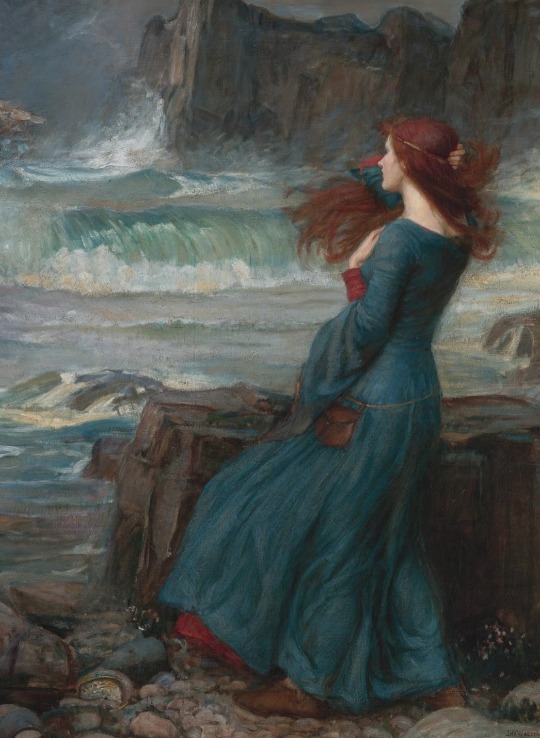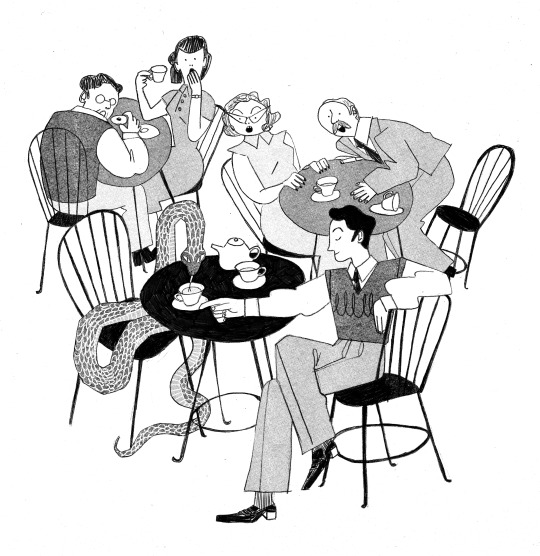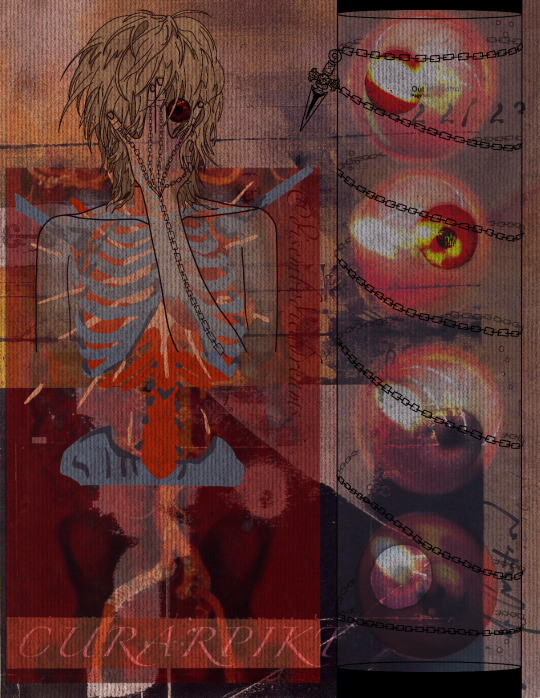Text


Nearly forgot to post this all together
Either way, such a small payment compared to the gift that is @tswwwit and their newest passion project, of which I love dearly 😔
540 notes
·
View notes
Text
Remember the bit in book 5 where Dumbledore acts like the fact that Voldemort expected Dumbledore to sacrifice Harry in order to try to kill him is evidence of how evil and depraved and incapable of understanding love or goodness Voldemort is?
When in fact it turns out that Voldemort called it exactly right and that was, in fact, Dumbledore's plan all along?

Like. Voldemort has Dumbledore's number. That is, in fact, exactly what he would do. He was just wrong about when Dumbledore would be willing to do it.
Ngl. For all that Dumbledore likes to think of himself as a Tom Riddle expert I think Tom Riddle actually understands Albus Dumbledore a lot better than Dumbledore understands him.
Dumbledore lied right to Harry's face so much.
125 notes
·
View notes
Text
Prospero & Ariel vs Ciel & Sebastian | Part 3 (Romance Edition - Extra)
Chapter 216's Main Question: Is Sebastian Ariel or Miranda?
This is a continuation of Part 1 and Part 2.
I don't know if everyone agrees but this chapter is really giving us the option between Sebastian being Ariel or Miranda within the narrative.


If we go off his own words:

He thinks he is Ariel, slaving away for a man who may or may not love him. Ariel stays a servant til the end and is finally let go by Prospero despite him saying that he will miss Ariel. In many interpretations, Ariel is the one who ultimately changes Prospero through love and is the reason all's well that ends well (this is not a pun).
But beyond his own personal words, Yana portrays him as Miranda on the chapter cover, even the quote on the chapter cover ("Ah, the wonderful human world.") echoes her final words in the play.




Miranda, while content as Ferdinand's maid or servant, ends up marrying him in the end. She gets what Ariel didn't get: the love she was asking for and a consummation of her feelings through marriage. Ariel is a spirit and cannot have such a thing. Only Prospero sees Ariel, they are not able to be together even if Prospero had wanted that. But he also wanted to set Ariel free once everything was over.
It's no coincidence that both of these characters ask their respective "lord" if they are loved or not. And while are both loved and it is hard to question it, Prospero's love is unclear and other than saving Ariel at the start, he never really does anything for Ariel's sake while Ferdinand is willing to work for Miranda's father and ultimately for her sake. (Prospero makes Ferdinand work for them like a slave to test his love of Miranda.)
And let's look at Ciel here:


Both in Chapter 215 and 216, he clarifies he is doing something for Sebastian's sake, cleaning up his affair. It's not a particularly kind or loving thing to say but Prospero doesn't have to do anything for Ariel. He doesn't defend Ariel verbally (nobody can see Ariel), he doesn't bring Ariel food (Ariel never gets injured), he doesn't gets him tea (like... seriously) and indeed, Ariel doesn't have a past scandal that Prospero has to go to the smoking room to solve. But these are all things that happen between these two.
So, who is Sebastian? Is he more like Ariel, who is ultimately freed but never experiences reciprocal love from Prospero? Or is he more so Miranda, who would be Ferdinand's servant if he had rejected her but ultimately is loved enough that he will work for her and ends up marrying her (then cheating at a game of chess as they play together)? Yana drew him as the latter on the cover while he sees himself as the former. Perhaps he is both, and perhaps these were just one off comparisons. But it doesn't hurt to read the play and think about these two characters who Yana so desperately wants us to draw connections to.
83 notes
·
View notes
Text
Prospero & Ariel vs Ciel & Sebastian | Part 2 (Romance Edition)
What did the comparison in Chapter 216 really mean?
Please read Part 1!

What I love here is that Ciel does not deny he and Sebastian are akin to Prospero and Ariel but rather he expresses the fact he is troubled by the fact Sebastian has had a prior relationship with Modri Vladis (if that is true). He instead calls back to the end of the previous chapter where he had straight up said he is cleaning up after Sebastian's past affair. He's sort of rubbing the fact that he is doing something for Sebastian's sake in his face. Anyway, the relationship between Prospero and Ariel is not explicitly* romantic or parental. But it is fascinating.
*Well... I'll get to that.

In the final act, Prospero regards letting go of Ariel as setting them free but also calls them very fondly. He does so multiple times in this scene.


Kuroshitsuji calls The Tempest a romance. The main plot of this Shakespearean story is not romance. In fact, it is more of a tragicomedy than anything. The side plot however is a romance. Miranda, Prospero's daughter, and Ferdinand, Prince of Naples, develop a romance and end up together. But these two characters are quite obviously foils for Prospero and Ariel whose relationship is trapped in the mould of master and servant; while Miranda, despite ending up at Ferdinand's wife, says she is willing to be his servant if he does not take her as his wife.

Miranda, unlike the inherently tragic relationship between Ariel and Prospero that remains secret and ends with separation, ends up marrying her love Ferdinand, rather than ending up his servant. But, despite this, she still treats Ferdinand as a master even as they play chess and she accuses him of cheating, calling him 'Sweet Lord' (Ariel also calls Prospero 'my lord') and claiming she does not care if he cheats and takes over the world.


Her attitude of servitude in their game of chess is rather familiar. It echoes the way Sebastian and Ciel engage in chess, Ciel breaks the rules and cheats while Sebastian supports him wholeheartedly. In Prospero and Ariel's case, Prospero too is cheating against his enemies using Ariel.

Not much more to say. I'll leave you all with this.

Very cute of a comparison, considering these two were... romantically charged. To say the least.
"Do you love me, master, no?" (Act 3, Scene 1) / Ariel claims Prospero is tender, causing him to forgive his brother (Act 5, Scene 1) / Ariel dresses Prospero and after being given an order, says he will return before Prospero's heart beats twice (Act 5, Scene 1)
Highly recommend reading this and how Ariel's one-sided love changed Prospero.
It is Ariel's very love that makes possible Prospero's forgiveness, his return to the fullness of his humanity. In her love for him, for his humanity that she alone can fully perceive, Ariel becomes the protagonist of forgiveness. Prospero, through this love that comes as total gift, completes Ariel's lines. Ariel's love converts, opening up Prospero to the value of "virtue" above vengeance. The ease through which Prospero forgives is not itself the result of magic. It is instead the power of Ariel's love, which was forming Prospero throughout the play, that makes possible a return gift of love upon the part of Prospero. In this sense, perhaps The Tempest is actually Shakespeare's greatest love story. It reveals a love, which cannot be consummated (for a spirit cannot unite with body), that nonetheless makes possible the "comedy" of The Tempest. It is a love that opens up Prospero to a world of values, which only slowly (throughout the play) become his own. Such love ironically is offered by a non-human character, who nonetheless humanizes the protagonist. The genius of Shakespeare's comedies (and The Tempest is at least kind of one of these) for the Christian is that it opens us up to the manner in which love humanizes the world. It manifests to us in dramatic form what happens when a kind of "divine" love leads to conversion. — Timothy P. O’Malley, August 30, 2016
138 notes
·
View notes
Text
Prospero & Ariel vs Ciel & Sebastian | Part 1
What did the comparison in Chapter 216 really mean?

Two things to get out of the way.
1. Unlike what it says on this page, The Tempest is not a romance, at least the only explicit romance (two characters getting together) is a side plot really and it's not between Prospero and Ariel. It's between Prospero's daughter, Miranda, and the Prince of Naples named Ferdinand.
2. Ciel uses feminine pronouns for Ariel and this is likely because at the time, female actresses played the role but the character's gender is dubious (this is intentional on Shakespeare's part, he uses various pronouns for them) and it is purposely hard to pinpoint and has changed throughout history depending on depictions. I highly recommend the paper below:
This ties Ariel in nicely with the other butler characters in the series, as shown:

Grelle is a trans woman and supernatural, Agni has the name of a God who is in a relationship with another God (Soma) and plays the receptive "feminine" role in this relationship and he is supernaturally strong...
Just in case anyone wants to read more on Agni.
..Wolfram is de-gendered by the narrative of the arc that introduced him (he was a person lacking a name/real identity and was sent to live amongst a village of women) and by Sieglinde, his master, (when Sebastian asks if he is a man, she compares him to an animal and doesn't seem to perceive him as male) and he is supernaturally strong. Sebastian is presented in both masculine and feminine ways/roles throughout the story and is a supernatural being and we do not know if he even has a sex or gender in his true form. All this to say: Ariel fits in the roster of supernatural servants with ambiguous identities / directly going against the norms of society.
67 notes
·
View notes
Text


For those who doesn't know the tempest
About Prospero
With the help of Ariel, his servant spirit, everyone survives and gets separated into different groups, all according to Prospero’s plan. He actually not only plots to regain his title and marry off his daughter to Ferdinand, he also wants to take revenge on his enemies. This is what it looks like, at least. Prospero is one of Shakespeare’s most enigmatic characters, and his motivations are not always clear. His behavior could look superficial, stereotyped, and sometimes rageful, but Prospero might actually be more complex and moral than we think. It seems that throughout the story he acts according to an extremely rational and moral plan; rational processes guide him, making sure the plan does not fail, but we also notice a broad sense of compassion towards his fellow humans, his enemies too, even though he plans to make them understand that what they did was wrong.
About Ariel
Ariel is a spirit who works in Prospero’s service. Prospero first encountered Ariel soon after landing on the island. He found Ariel trapped in a cloven pine tree and freed the spirit from his prison. In return, Ariel promised to serve Prospero faithfully for a year, after which time Prospero would give Ariel back his freedom. We don’t know how long Ariel has already worked for Prospero when the play begins. Prospero has been on the island for twelve years, so Ariel might have been in his service for many more years than their agreement required. Then again, possibly Prospero freed Ariel from the tree only a year prior to the events of the play. Either way, Prospero’s unwillingness to set Ariel free stems from the fact that Ariel possesses immense power. As the spirit explains in his first lines in the play, not only does he have an impressive range of abilities, but he also commands a host of lesser spirits. Given Ariel’s extraordinary magical abilities, Prospero leans heavily on him to execute his complex revenge plot. Ariel has spent a lot of time around humans and he learned a thing or two about them. In Act V, for example, he appears to take pity on the castaways. He tells Prospero that if he were human his “affections” would be “tender,” convinces Prospero to stop using magic and reconcile with his enemies. Ariel effectively manipulates Prospero by appealing to his humanity, and in doing so he ushers himself closer to freedom.
Another analysis about Ariel's feelings
The Tempest suggests that there is a love between Prospero and Ariel that eventually converts the former toward the act of forgiveness. Ariel's relationship with Prospero in the play is necessarily marked by her identity as Prospero's slave. She must obey. But he wants more than this master-slave relationship.
So. After reading this it's pretty clear, that Ariel stands for Sebastian. And Prospero for Ciel.
Even if not hinted, the cover tells us all. Yana couldn't make it clearer by anything, that we reached a new level of Ciel's and Sebastian's relationship.
She may not show us a romance even if this screams like a date Yana just hinted that Sebastian wants to be more than just Ciel's servant, and that he feels love for him.
That's big. And finally a glove into the face of every fucking anti.
210 notes
·
View notes
Text
sheila=pariston theory gets mentioned and i suddenly become a lawyer that's defending it like rents due next week
66 notes
·
View notes
Text
“oooh i need junji ito to write me an essay” okay so youre a little baby so youre a little baby waby who needs mommys help
66K notes
·
View notes
Text

So, after @subdee's excellent post about doubt regarding the Phantom Troupe's alleged slaughter of the Kurta Clan, I was staring at this image and thinking about Sheila's terribly sad expression here...
This is juuuust a theory, and there's not a ton to back it up but I'm just throwing it out there--make of it what you will!
Here the Phantom Troupe is talking about their grand plans to find out who killed Sarasa and hold them responsible for what happened to her, why would Sheila be heading away from them with that pained expression? It's possible she simply didn't approve of their methods of going about it (though she's not shown as involved in or reacting to that conversation), but the way it's framed makes me think more of her hiding something.
What if Sheila already knows who's responsible for Sarasa's death...because she has some sort of involvement in the kidnappings that have been happening in Meteor City? Wouldn't that explain her expression here and abruptly leaving the situation?
Perhaps she's acting as an informant for the kidnappers or is aiding them in some other way? She's frequently shown as being injured, which characters comment on being as a result of her "clumsiness," but maybe she's being repeatedly injured as a threat/method of controlling her?
(In this case it's entirely probable she didn't intend for Sarasa herself to be killed--Sarasa went outside her usual range to try to find more tapes, and the kidnappers had already met their "quota for delivery" so this may have been an unusual case. It's possible Sheila had some sort of agreement that they would leave her friends alone by sticking to specific areas, for instance, that Sarasa may have gone outside of.)

(This guy's moles are pretty distinctive so that makes me wonder if he'll show up again...)
This note about Sheila's role in the production could be relevant as well--that she's "two-faced."

I think it's possible Tserriednich and/or circles he runs in are involved with this whole operation, which could mean Kurapika and the Troupe have a common enemy. I'm not sure if the timeline supports Tserriednich's involvement due to his age, however, he might be too young. Regardless, it's interesting to me that both Kurapika and the Phantom Troupe have the same root cause of their trauma and desire for revenge: People buying and selling human beings and parts of human beings as trophies and for sadistic purposes, which is what Tserriednich certainly represents. (As I said in another post, I'm all but certain the head Tserriednich has is Pairo's. It sure looks like Pairo's face inside his nen beast...)
Sheila could still be involved with the same people by the time the Kurta Massacre happens, and she uses Kurapika and Pairo to gather information on the Kurta Clan for whoever this group or individual may be--likely the real culprit behind the massacre. Again, potentially Tserriednich or someone he's associated with.
What happened with Sheila and the Kurta Massacre definitely comes across as suspicious (her showing up and communicating with Kurapika and Pairo shortly before the massacre happens), so I feel that lends more credibility to the possibility of her being involved somehow in the Meteor City kidnappings as well.
Again, take this all with a grain of salt. Of course Sheila was previously involved with the Phantom Troupe so it could be that the connection is that simple (though to me it doesn't explain the scene from the beginning of this post nearly as well). But I definitely feel like something more is going on here.
109 notes
·
View notes
Text
love potions [hp]
anyone else think love potions should be banned?
using a love potion on someone is, in short, controlling their minds and desires and using them for romantic or even sexual purposes without their consent. so r@pe, basically.
this is literally how voldemort was born. merope gaunt kidnapped tom riddle senior and had a child with him entirely without his consent.
in present context (hp timeline) we see love potions being handled by literal teenagers- being sold in weasleys' wizard wheezes, disguised as perfumes and being shipped into hogwarts secretly.
there is a whole cauldron full of amortentia down in the dungeons, in a SCHOOL.
the whole "love", whimsical, fantastical part of these distract you from what they really are- mind-controllers. not unlike the imperius curse- and THAT'S banned and unforgivable.

notice how even harry unknowingly uses the two interchangeably- what are two ways to control someone to do what you like? the imperius curse... or a love potion.
how is shit like this not banned by the ministry?
54 notes
·
View notes
Text
离思五首 — The Five Songs of Mourning (complete)
And a little analysis.
In the morning mirror with the residual makeup of self-love, the hairpin is covered with green silk.
In a moment, the rising sun shone on the blush-painted cheeks, a red rose is about to awaken.
The mountain springs flow freely around the steps, and thousands of peach trees and blossoms reflect on the small building.
Reading Taoism leisurely and not getting up yet, watching her comb her hair under the bead curtain.
The red color is pressed by the new season, and the flower threads are soft and the dust is auspicious.
First of all, don't think that the material and soil are weak, a little sloppy is the most pleasant.
All water is forgettable when you’ve seen the vast blue sea, no clouds so wondrous as those at Mt. Wushan.
Idly, I pass by some flowers without looking back, partly to study Tao, partly to think of you.
There are usually hundreds of kinds of flowers in bloom, but the pear blossoms and white flowers are especially picked.
Today there are two or three trees at the head of the river, sadly spending the last spring with their leaves.
自爱残妆晓镜中,环钗漫篸绿丝丛。 [Zì'ài cán zhuāng xiǎo jìng zhōng, huán chāi màn cǎn lǜ sī cóng.] 须臾日射胭脂颊,一朵红苏旋欲融。 [Xūyú rìshè yānzhī jiá, yī duǒ hóng sū xuán yù róng.] 山泉散漫绕阶流,万树桃花映小楼。 [Shānquán sànmàn rào jiē liú, wàn shù táohuā yìng xiǎo lóu.] 闲读道书慵未起,水晶帘下看梳头。 [Xián dú dào shū yōng wèi qǐ, shuǐjīng lián xià kàn shūtóu.] 红罗著压逐时新,吉了花纱嫩麴尘。 [Hóng luōzhe yā zhú shí xīn, jíliǎo huā shā nèn qū chén.] 第一莫嫌材地弱,些些纰缦最宜人。 [Dì yī mò xián cái de ruò, xiē xiē pī màn zuì yírén.] 曾经沧海难为水,除却巫山不是云。 [Céngjīngcānghǎi nàn wéi shuǐ, chúquè wūshān bùshì yún.] 取次花丛懒回顾,半缘修道半缘君。 [Qǔcì huācóng lǎn huígù, bàn yuán xiūdào bàn yuán jūn.] 寻常百种花齐发,偏摘梨花与白人。 [Xúncháng bǎi zhònghuā qí fā, piān zhāi líhuā yǔ báirén.] 今日江头两三树,可怜和叶度残春。 [Jīnrì jiāng tóu liǎng sān shù, kělián hé yè dù cán chūn.]
Yuan Zhen describes the beauty and shy vanity of a woman who woke up in the early hours of the day. His writing is thoughtful, as if it were a moment he had just experienced, on the morning of the day he wrote the poem.
The landscape is described from far to near, and one can imagine that the colors start out dark and gradually become clear and vivid. Yuan Zhen reads a Taoist work, but neither this nor anything around him stops him from watching his wife getting ready for a new day.
As mentioned earlier, here, the fourth part tells of the poet's devoted love for his wife. Nothing will ever be as splendid as his beloved is to him. Yuan Zhen was intoxicated by the rough sea and beautiful clouds of Wushan, whose beauty was unprecedented.
With the last part, we can conclude that throughout the poem there are dark details amidst the beauty, the apathy of someone who doesn't seem to see anything special anywhere. The land is neglected, the trees are withering. It was the end of spring and a widower was mourning.
27 notes
·
View notes
Text







love it when I read 18th century chinese collections about the supernatural and the author just slaps some of the most timeless and profound sentences ever written in my face
44 notes
·
View notes
Text
The Five Songs of Mourning (four), by Yuan Zhen
An analysis of the poem and Hua Cheng
离思 五 首(其四) [Lí sī wǔ shǒu (qí sì)] 曾 经 沧 海 难 为 水 [Céng jīng cānghǎi nán wéi shuǐ] 除 却 巫 山 不 是 云 [Chú què wūshān bú shì yún] 取次 花 丛 懒 回 顾 [Qǔ cì huācóng lǎn huí gù] 半 缘 修 道 半 缘 君 [Bàn yuán xiū dào bàn yuán jūn]
“All water is forgettable when you’ve seen the vast blue sea
No clouds so wondrous as those at Mt. wushan
Idly, I pass by some flowers without looking back
Partly to study Tao, partly to think of you”.
The poem “离思五首 (The Five Songs of Mourning)” was written by 元稹 (Yuan Zhen) after the death of his wife, describing his longing for her. Mourning is a recurring theme in ancient Han poetry. This is part four of five.
Yuan Zhen describes in every word the devotion he felt for his wife, the love he felt for her that would never be forgotten.
The sea water and clouds of Wushan are used as metaphors for the depth and breadth of love. After seeing the sea of Wushan, it is difficult to appreciate the water and clouds of other places. In other words, except for the woman whom the poet misses and loves, there is no other woman who can catch his attention.
曾 经 沧 海 难 为 水, (if you have experienced the rough sea, you will not be attracted to water anywhere else).
This first sentence is also quoted in "孟子·尽心上 (Mèngzǐ: jìnxīn shàng — Mencius: Chapter 1 of “Dedicate Your Heart”, free translation)", which talks about Confucian thought and encourages people to work hard and make a difference. It is one of the important classic works of Confucianism*.
It is interesting to talk about “高唐赋 (Gāo Táng Fù)” from 宋玉 (Song Yu) as well, which tells the story of a king who dreamed of meeting the goddess 瑶姬 (Yao Ji) of wushan:
“In the sun of wushan, blocked by high hills, clouds appear in the morning and rain falls in the evening (姜在巫山之阳,高丘之阻、旦为朝云、暮为行雨。) (Jiāng zài wushan zhī yáng, gāoqiū zhī zǔ, dàn wèi cháo yún, mù wèi xíng yǔ)”.
Nowadays, these two verses have come to refer to loyalty to love, indicating that love belongs to none other than the goddess Yao Ji, and this love is not for others.
The verses in these three poems express one's devotion to another, the dream of finding one's love in wushan, because the clouds and rough sea there are no match for those of others.
除却巫山不是云, (No clouds are as wonderful as those on Mount Wushan).
巫山 (wushan) is both a real place and a metaphor in Chinese poetry that refers to the encounter between men and women. In Yuan Zhen's poem “Li Si,” wushan expresses the loneliness, apathy, and love that the author feels after the loss of his wife.
取次花丛懒回顾, 半缘修道半缘君 (Idly, I pass by some flowers without looking back, partly to study Taoism, partly to think of you).
花 (hua) means flower. The flower here is not referring to nature, but rather to a place with many beautiful women, an allusion to brothels.
Taoism, also called Daoism, is a philosophical and religious tradition that is based on “Tao”, a word that means path or principle, and its goal is to find the path or tao to achieve liberation of the soul.
Taoism has two main branches:
Philosophical Taoism: Focuses on meditation and the study of the Tao to achieve wisdom and inner peace.
Religious Taoism: Involves rituals, worship and the veneration of deities.
The author, by saying that he passed by flowers without caring about them, obviously expresses that no other woman, no matter how beautiful, can compare to his beloved, because only his beloved is his wushan, the goddess Yao Ji. Experiencing grief, his attention has been to practice Taoism, perhaps as a way to find peace, after all Taoism is about the liberation of the soul, or even about continuing to worship, devotedly, his wife, and thinking about his beloved.
This is the favorite poem of Hua Cheng, who spent 800 years searching for his beloved, Xie Lian, being deeply devoted to him in both life and death. Unshakable and firm as a mountain, over the centuries his stubbornness only grew and strengthened him, leading him to commit acts of revenge, adoration, and romance, dreaming of finding him both to protect him and to love him romantically.
With Xie Lian being a god and Hua Cheng his last devotee, it can be said that Xie Lian is Hua Cheng's goddess Yao Ji, the one who ruined him for anyone else, because once you know something divine, nothing else compares.
Hua Cheng's name, 花城, means "city of flowers". Xie Lian's characteristic element is a flower: his first divine title was "Flower Crown Martial God, 花冠武神", his temples were decorated with many branches of flowers, and most of his statues and paintings depict him holding a flower in one hand and a sword in the other. Hua Cheng's name is about Xie Lian and a declaration of love for him.
“Xie Lian’s hand brushed against the red sand plate, leaving a few red traces on the paper as he struggled. On the paper, the words ‘wushan’ in the sentence ‘If you are enchanted by the wind and clouds of wushan, you will not be attracted by the clouds of other scenery’ were stained with small red marks, almost seductively… Xie Lian uttered, “San…” Before he could finish his sentence, Hua Cheng pressed his shoulders down and kissed him.
“San” is from “San Lang,” which is what Xie Lian calls Hua Cheng at Hua Cheng’s request. “Lang” is used by wives to refer to their husbands in Chinese culture. When they first met, Hua Cheng introduced himself as San Lang, and after his identity was revealed, he confessed that he preferred Xie Lian to keep calling him by that name.
The funny thing is that other characters knew Hua Cheng as San Lang before his identity was revealed, but no one dared to say his name other than Xie Lian.
The sedan scene was Hua Cheng finding his beloved wife after 800 years of searching, loneliness, and mourning, but he remained mostly quiet, as if he didn’t want to scare away the god he had dreamed of meeting, and as if he wasn’t yet ready to be anything more than a humble devotee. At that moment, Xie Lian was still a divine figure to be worshipped from afar. The carriage scene was his first courtship, and with a different appearance, Hua Cheng felt more comfortable acting ignorant and also paving the way for romantic love with Xie Lian.
*儒家 (rú jiā), one of the hundreds of schools of thought of the pre-Qin period, and grew out of the ritual and musical tradition of the Zhou Dynasty. Let people not be rigid or conservative, let them not be paranoid or extremist, let them advance with the times and not be complacent.
Sources:
Thinking of you, Yuan Zhen
Ancient Chinese Poetry Network
Wushan, Baidu
Confucianism
高唐赋
孟子·尽心上
39 notes
·
View notes
Text

Tea time with Tom Riddle for @augustuscaesarsalad
Contrary to popular belief, I love drawing characters I don't usually draw. I just never remember to draw them. Thank Caesar Salad for reminding me and planting this image in my head.
666 notes
·
View notes








